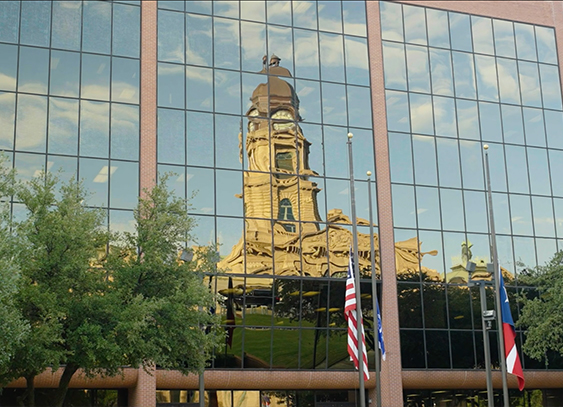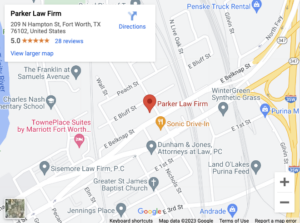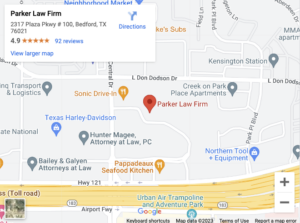What Classifies as a Catastrophic Injury?

The term “catastrophic” derives from “catastrophe,” which means “a sudden event that causes great trouble or destruction.” This is an apt description of an accident that results in catastrophic injury.
Generally, a catastrophic injury is one that results in extensive damage to a person’s body or mind and that is permanent or long term. Whether an injury is catastrophic is a matter of the severity of the injury.
Catastrophic injuries can involve the following:
- Extensive medical treatment
- Post-treatment care
- Post-treatment use of a medical device
- The inability to work
- Loss of enjoyment of life
- Loss of memory
- The inability to function at a cognitive level that equals the level before the injury
- Paralysis
- Impairment of body functions
- Permanent tissue damage or scarring
- The inability to talk, see, or hear
- Memory loss
- Disabilities
These injuries require intensive and ongoing medical care. Most people with catastrophic injuries cannot recover fully from the injury they suffered. This leaves them with a lifetime of medical bills, impairment of mind or body function, and long-term pain and suffering.
Examples of Catastrophic Injuries
Some well-recognized types of catastrophic injuries and their effects include:
- Amputation of a body part: deformity and loss of body function
- Spinal cord injuries: loss of motor function, respiratory and circulatory problems, lack of bowel and bladder control
- Brain injuries(also called traumatic brain injuries, or TBI): cognitive impairment, inability to speak, mobility limitations, change in personality
- Complex or multiple bone fractures: mobility impairment, deformity, scarring
- Organ damage: impairment of organ function, infection, impairment of other body systems
- Loss of sight: total loss of sight
- Loss of hearing: total loss of hearing
- Spine injuries: loss of motor function, deformity
- Skull fracture: brain bleeding, infection, seizures
- Neurological damage: seizures, vision problems, communication deficits
All of these injuries can result in chronic pain. They can be permanent. A person with a catastrophic injury may never fully recover from his or her injuries or pain. This leaves the person with a permanent functional disability and substantial loss of enjoyment of life.
It may also interfere with the person’s personal relationships when their loved ones are suddenly required to be caregivers. Returning to work may be impossible. Physical, emotional, and financial struggles affect a person with a catastrophic injury.
Effects of a Catastrophic Injury
The effects of a catastrophic injury are far-reaching. The injured person has to deal with much more than just the injury. Below are some of the long-term consequences of having a catastrophic injury.
Medical
Whether a person can recover from a catastrophic injury or not, the effects of the injury are severe and long-term. After the event causing the catastrophic injury, the person will require hospital treatment and possibly a long hospital stay. Medical care will begin after hospitalization and will continue indefinitely, possibly for the remainder of the person’s life. This is particularly true of catastrophic brain and spinal cord injuries.
Physical
A person with a catastrophic injury will also have to manage the physical effects of the specific injury they suffered. An amputee may have to learn to walk again. A person with a traumatic brain injury may need cognitive training and speech therapy.
A person with a spinal cord injury may have to adapt to life in a wheelchair. All of them will have to adjust to a new way of living.
Emotional
In addition to physical struggles, a person who suffered a catastrophic injury may have mental or emotional pain to manage as well. Suffering a life-threatening injury is life-altering. Things a person could easily accomplish before the injury may be impossible afterward.
When you lose a part of yourself to a catastrophic injury, that loss stays with you. Depression and anxiety are not uncommon in people who have had permanent injuries.
Financial
Medical bills add up fast for a person with a catastrophic injury. Long days at the hospital or in therapy can be costly. On top of this, the injured person may not be able to return to work right away–or at all. This puts a financial strain on the injured person and their family. Having money problems is one more stressor to manage.
All of these long-term effects are part of what makes an injury catastrophic.
Contact the Fort Worth Personal Injury Lawyers of Parker Law Firm Injury Lawyers for Help Today
Whether an injury is catastrophic depends on the nature of the injury. If you are seriously injured due to someone else’s negligence or intentional wrongdoing, you may be entitled to damages for your injuries and losses. An experienced personal injury attorney can help you hold at-fault parties accountable for your catastrophic injury.
For more information, please contact an experienced car accident lawyer at Parker Law Firm Injury Lawyers to schedule a free initial consultation today. We have convenient locations in Fort Worth and Bedford, Texas.
Parker Law Firm Injury Lawyers – Fort Worth
209 N Hampton St,
Fort Worth, TX 76102
(817) 510-9400
Office Hours: Open 24 hours, 7 days a week
Parker Law Firm Injury Lawyers – Bedford
2317 Plaza Pkwy #100,
Bedford, TX 76021
(817) 503-9200
Office Hours: Open 24 hours, 7 days a week


